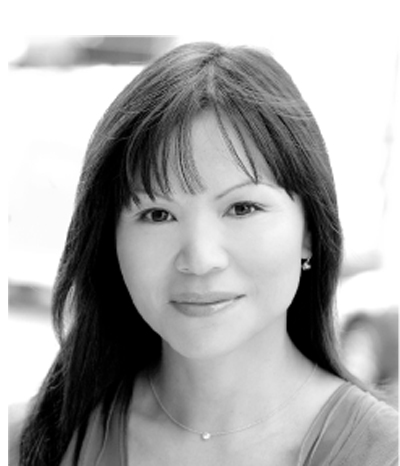Life and Leisure
Artist seeks support from her own people
By WU CHONG CHINA DAILY
Updated: 2010-04-06 00:00
 |
Large Medium Small |

NEW YORK — As an Asian American woman, Fay Ann Lee knew it wouldn’t be easy breaking into the predominantly white male movie industry. But she never expected that the biggest obstacle would be her own people.
Lee wrote, directed, and played the lead role in Falling for Grace, a romantic comedy which has received good reviews and been nominated for the first annual Epic Emerging Artist Award. The response from the Chinese American community has been disappointing, however.
“We’ve invested three million dollars, but we are very very far from (recovering) that,” Lee, now 41, told China Daily. One of the reasons, she said, is lack of support from her “own people.”
“We have 50 investors, mostly individuals with money. But most of them are not Asian Americans. I tried, though,” Lee said. One potential investor, an Asian super star to whom Lee had secured an introduction, “didn’t even care to take a look at my work,” she said.
Lee has been acting since 1993; she starred in the TV serial Law and Order and in several off-Broadway shows. After 10 years of preparation, she produced Falling for Grace in 2006.
On one level, the film is an old-fashioned, romantic comedy about a Chinese American banker and a white lawyer. Lee plays Grace, a second-generation Chinese American who dreams of making it in New York until one day she is mistaken for an heiress from Hong Kong and is introduced to Andrew, the city’s most eligible bachelor.
Falling for Grace premiered at the 2006 Tribeca Film Festival and received good reviews. In 2009, it was named the best feature film at the Reel Women International Film Festival.
Lee, however, sees the film as more than just a romantic comedy. “Americans see (Chinese Americans) in all kinds of trivial and simple roles on TV. No one (from Hollywood) writes Chinese Americans in an authentic way,” she said.
Besides being a Cinderella story, Lee said, the movie is a journey of self-awareness and tells the story of Chinese American communities from their own perspective, one of the few movies to do so since The Joy Luck Club.
Production costs exhausted the investment, leavingLee nothing for marketing and promotion. “We pretty much rely on word of mouth now,” said Lee, who has spent most of the past three years touring the United States with the movie.
She brought the Falling for Grace to Hollywood and received very positive feedback from film companies.
“They love the movie,” Lee said. “But they warned me that it’s still an Asian American movie and our community wouldn’t support it. Therefore they wouldn’t give me the money for distribution. And they were right.”
In San Francisco, many Chinese Americans came to a free screening of the film. But once it opened and they had to pay for a ticket, they stopped coming. The majority of the paying customers were non-Asian Americans, Lee said.
Lee compared her experience to that of Tyler Perry, a well-known African American filmmaker whose films have been supported by the African American community.
“I don’t know whether it’s part of the culture of our community or what. Asian Americans just don’t go to theaters that much,” she said.
Thanks to casting director Billy Hopkins (Precious, Shakespeare in Love), Falling for Grace stars Gale Harold (Desperate Housewives), Christine Baranski (Mamma Mia!) and Ken Leung (Lost). The movie has played in 15 cities, including San Francisco, Palm Springs, Scottsdale, and Washington DC.
So far it has done best in Scottsdale, Arizona, where it played for seven weeks.
The film came to New York City on March 19 and played at the Big Cinemas for two weeks. A DVD has also been released, and Lee has begun a new round of promotion.
Meanwhile, Lee is getting the best theater roles of her career. She’s doing an off-Broadway show called Ching Chong Chinaman and will then join an Asian American musical, Heading East.
“But I’m not pursuing acting any more,” Lee said. “I want to write and direct my own projects.”
She is already preparing her next project. But this time, it won’t be about Chinese Americans.
“I spoke to a bunch of Hollywood people. They said I can’t write for Asian Americans if I want to succeed, even though I have another story I’m dying to write,” Lee said. “I have accepted that fact for now.”
But, she still holds to her belief that Chinese Americans need to “care about what we’ve achieved” and have that seen in the media. “The most powerful place for that to happen is Hollywood,” she said.